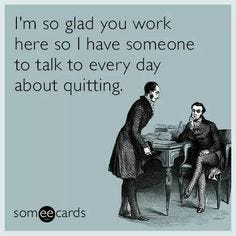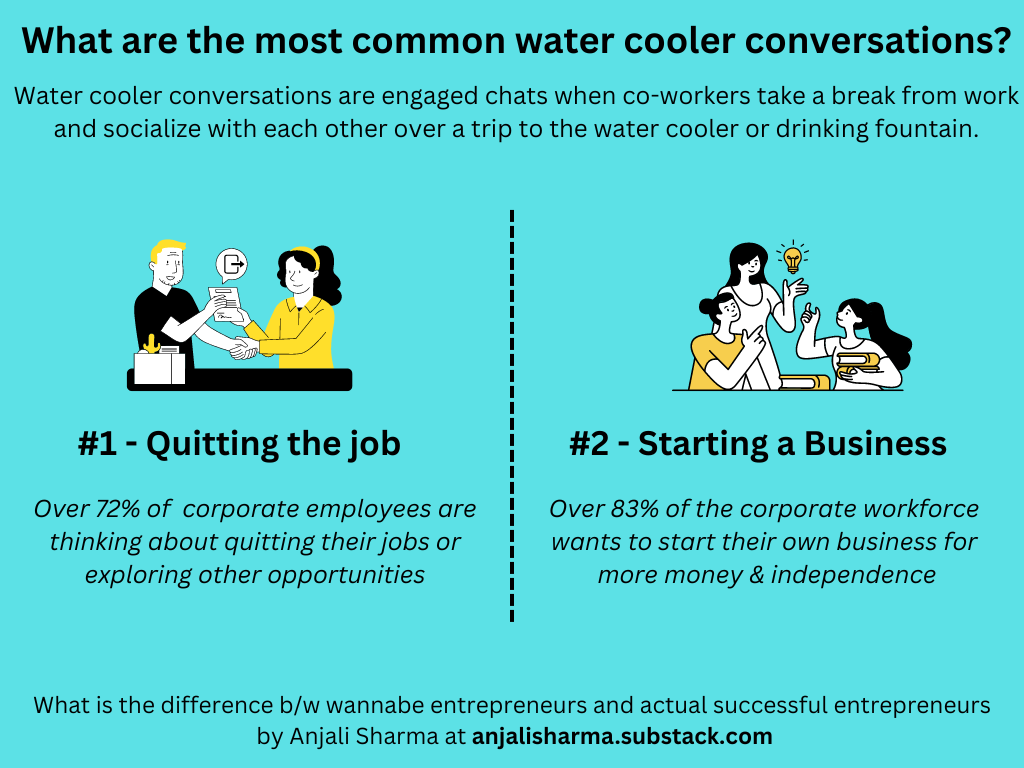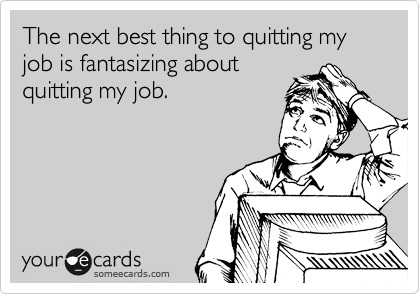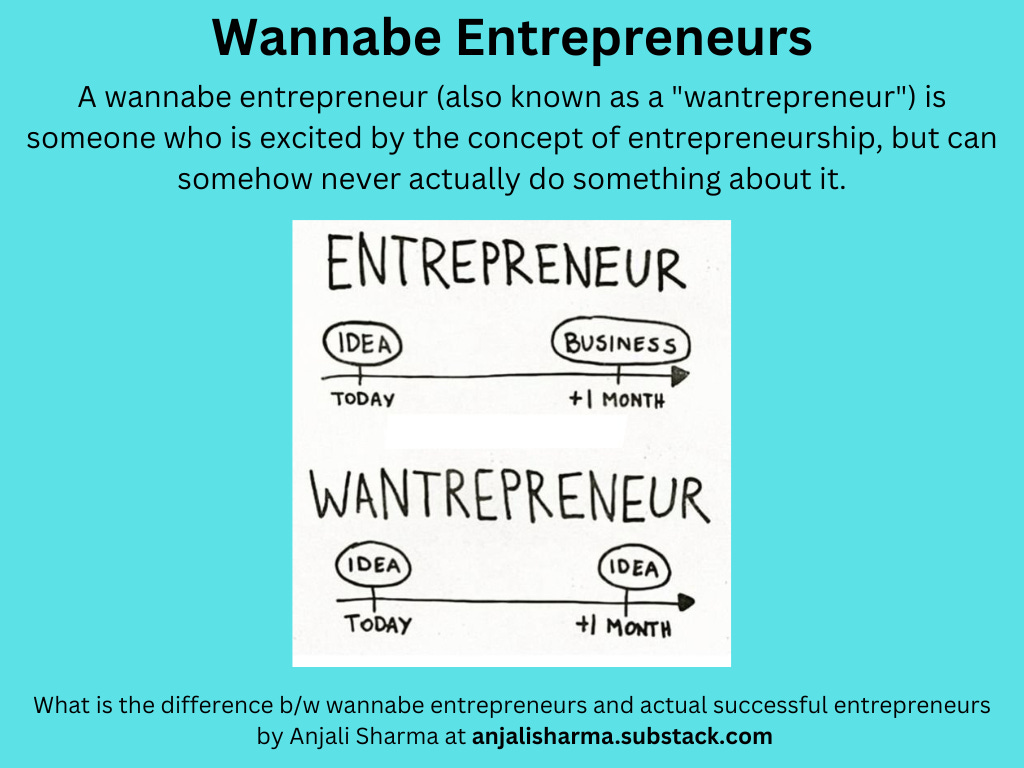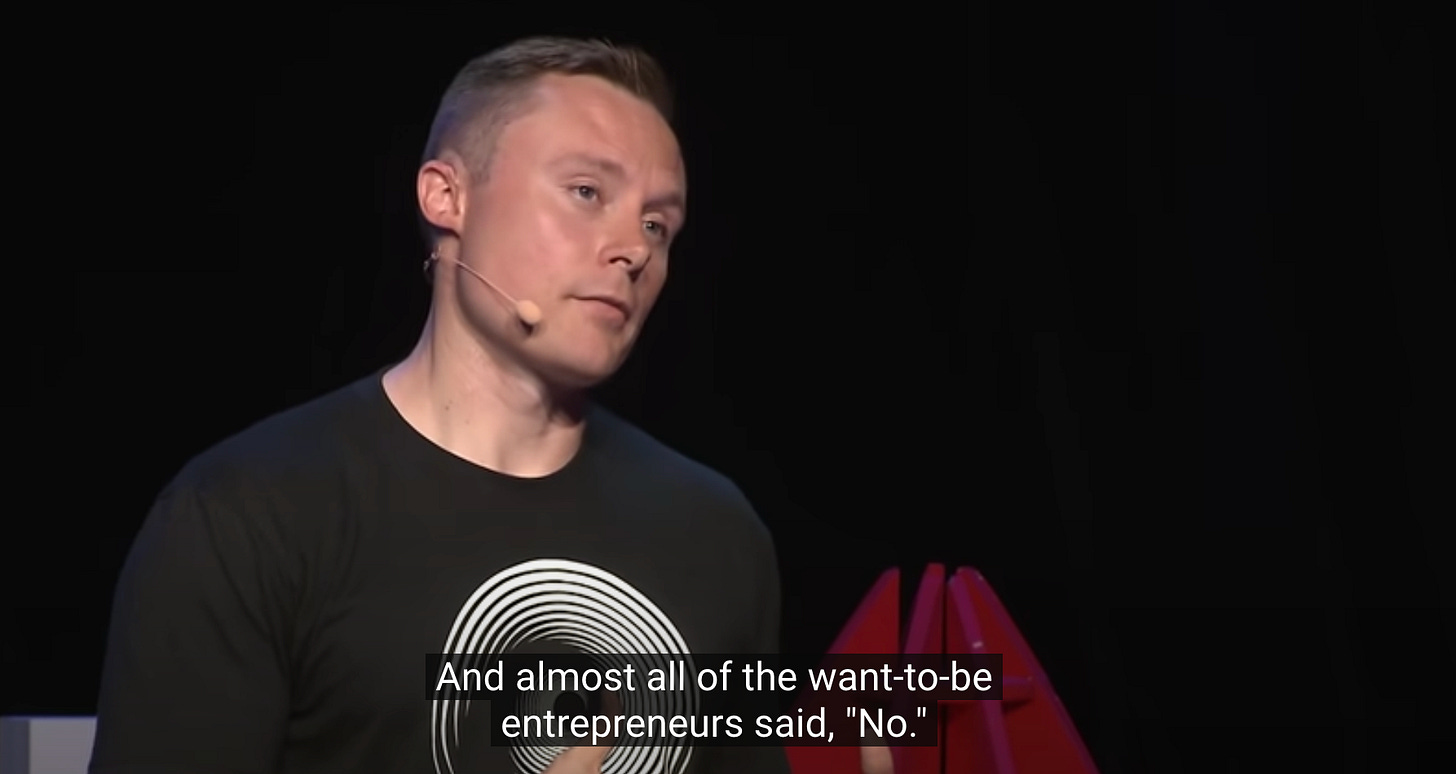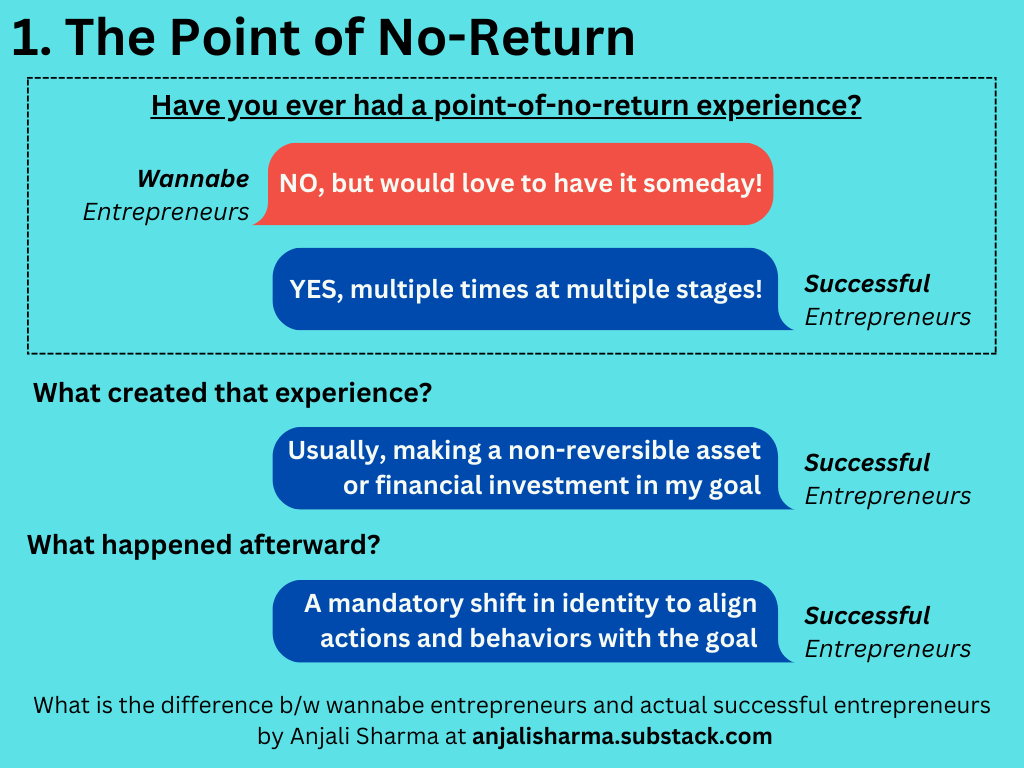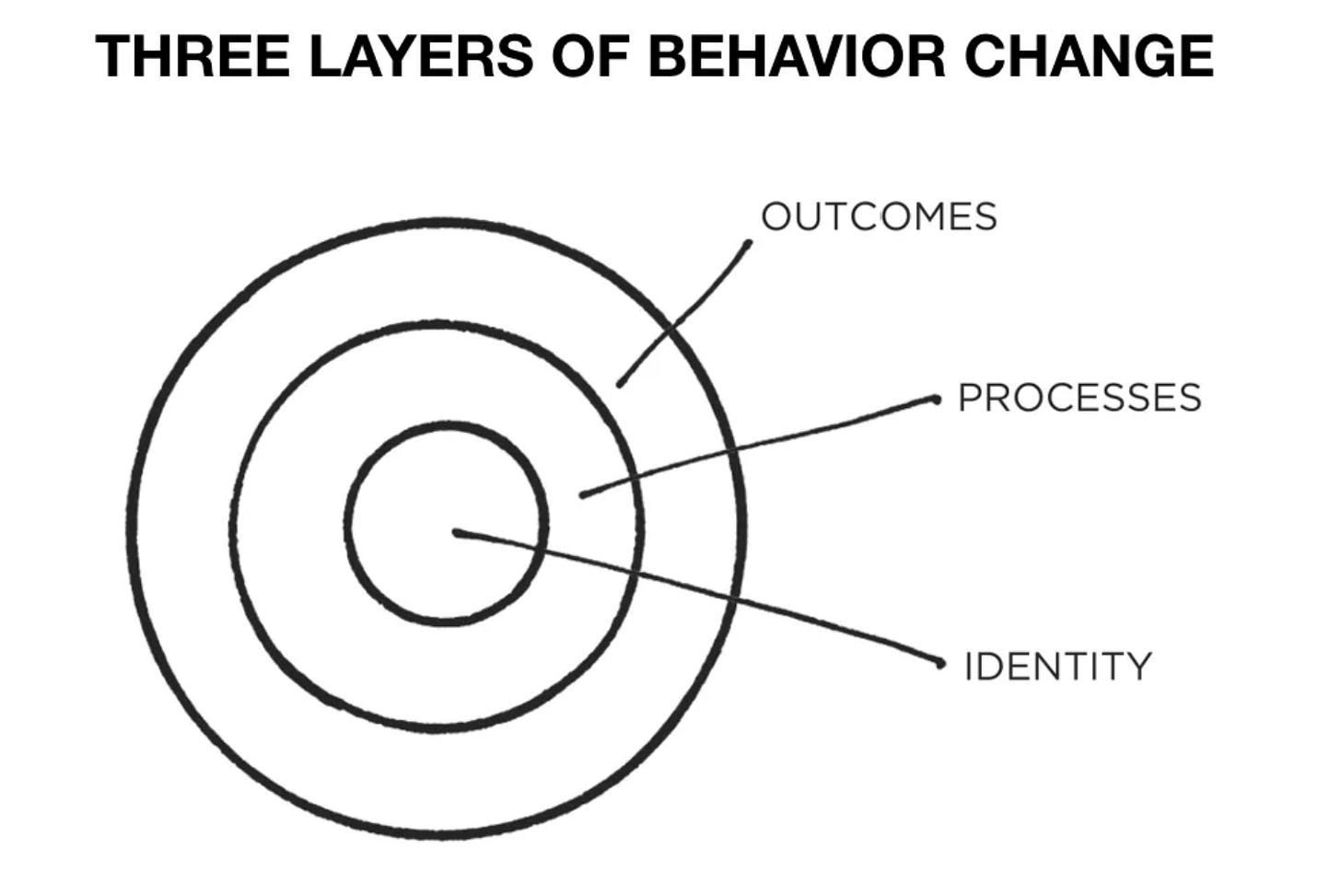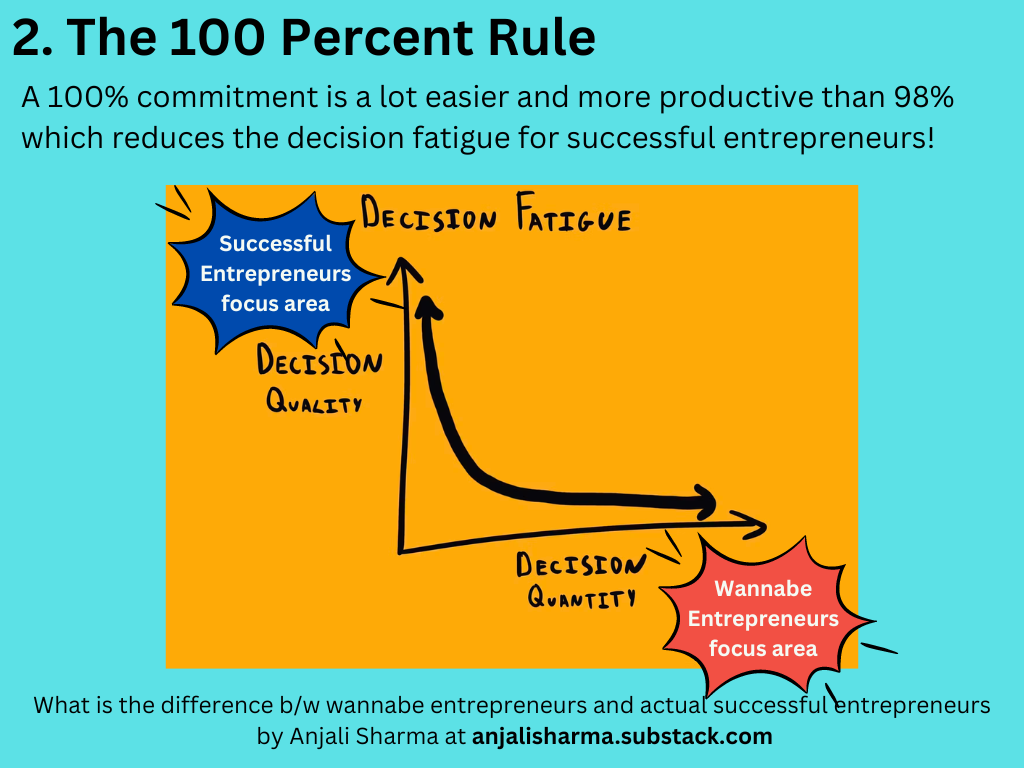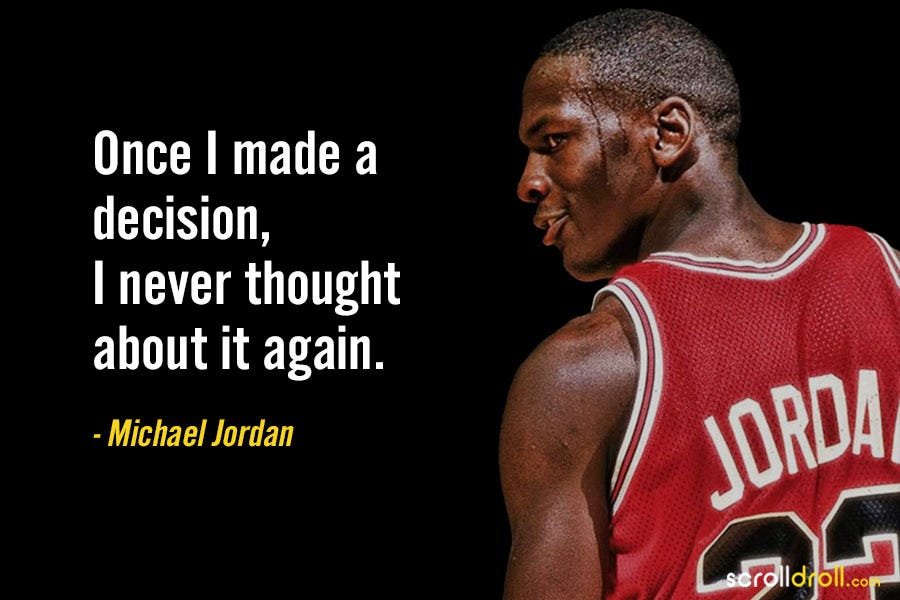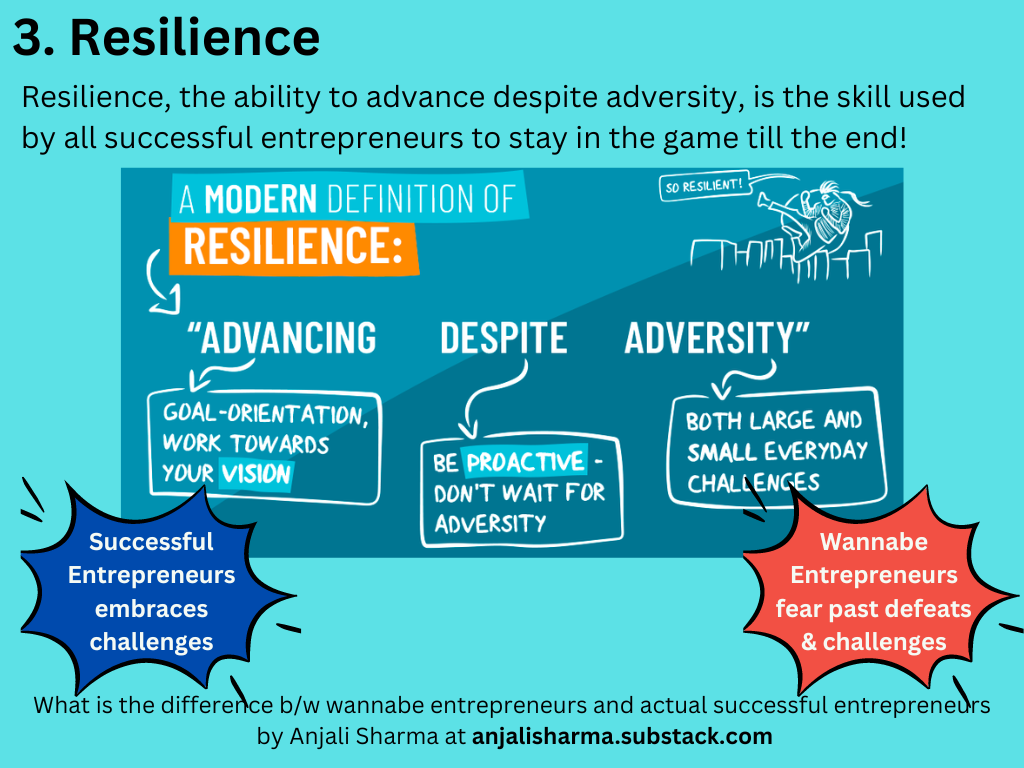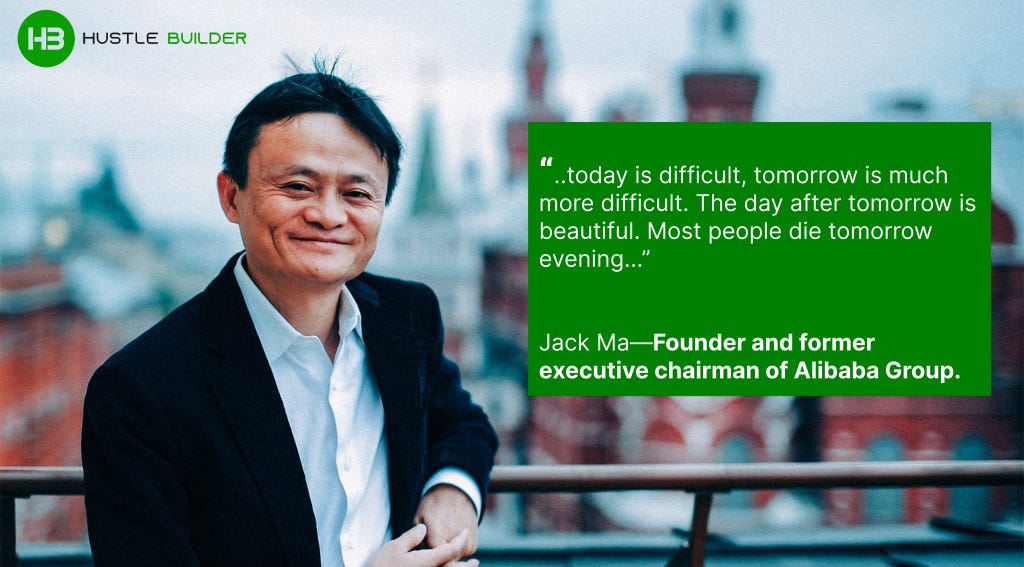What's the difference between wannabe entrepreneurs and successful entrepreneurs?
3 key areas to upgrade on the journey of successful entrepreneurship!
Can you guess what is the most common water cooler discussion among co-workers?
Yes, it’s about quitting their present jobs. According to the survey by TalentLMS, 72% of corporate workers are thinking about quitting their present jobs.
Now, can you guess the second most common discussion?
It’s starting a business of their own. The Times of India has reported over 83% of Indian workforce prefers to be entrepreneurs.
After exploring these stats and my personal experiences, I’ve always had this question that if so many people wants to be entrueprenuers, why are they not pursuing it?
That’s when I came across the term - Wannabe Entreprenuers!
Who are wannabe entrepreneurs?
In other words, wannabe entrepreneurs are the people who tend to read voraciously on the subject, share the wisdoms from Steve Jobs and Warren Buffet, attend meetups for entrepreneurs, join committees, quote the latest gossip and news from the tech blogs, refer to entrepreneurial celebrities by their first names...and yet have lots of reasons why now is not right for them to start (no time, no money, no skills, no partner, no office, no whatever).
Personally, I don’t think they do it by choice but majorly because they don’t have a clear vision of what exactly do they want to do and WHY.
Many of us are also coming in the same category and hence my today’s article is about understanding how to take action for upgradation to actual successful entreprenuers for anyone who wants to start a business but somehow can never actually do it.
So what’s the difference between wannabe entreprenuers and actual successful entreprenuers?
Great Question, let’s figure it out…
1. Point of no-return
Dr. Benjamin Hardy, an Organizational Psychologist (PhD) has studied over 12,000 entrepreneurs on the subject by asking one common question to all - “Have you ever had a point of no-return experience?”
He has shared the results in his TED Talk that almost all the wannabe entreprenuers have said NO. Though, a lot of them hinted the idea that they hoped to have a point of no-return experience one day, someday.
On the other hand, all the actual successful entreprenuers have said yes to the experience of having multiple point of no-return experiences in their lives!
Benjamin has extended the study to include all sorts of professional artists and authors and all the successful individuals have said yes to this question.
His further studies are about what created that point of no-return experience and what happened afterwards?
#1.1 - What created that point of no-return experience?
Despite being a subjective case-dependent question, most successful entrepreneurs have mentioned that making a non-reversible asset or financial investment in the goal has often created the point of no-return experience.
A 17-year old high school final year graduate has borrowed some money and pooled all his savings to order a shipment of 10,000 shoes with the idea of starting his shoe business. It was all fine in the phase of ideation but when the huge truck arrived at campus, he realised that he can’t go back from that point. That was his point of no-return.
#1.2 - What happened afterward?
The fact that the individuals standing on the point of no-return experiences cannot go back has most of the times worked as a blessing in disguide.
Keep going is the only way out.
But how to keep going? By changing their behaviors and actions to align with the goal. And how to do that - by changing their identity (The goldmine book Atomic Habits to the rescue again!)
Because they cannot undo any of their actions, they have to change their individual identities to align behaviors and processes to change the outcomes in their favor.
When that 17-year old saw a mountain of shoes stacked in a garrage, he had no other option than to align his identity with a person leading and running a shoe business. From that moment, he put himself in a position where he had to move forward and acted from that leadership role.
And that is what a point of no-return induces in an individual. They no longer associate themselves as who they used to be but what they have envisioned themself to be in the future.
As Oliver Wendell Holmes says, “A mind strected by a new experience can never go back to it’s former dimensions.”
2. The 100 percent rule
Another common trait that distinguishes wannabe entrepreneurs to successful entrepreneurs is their decision making ability and 100% commitment.
All the successful entrpreneuers are having the ability to remove the decision fatigue by eliminating addition choices, own their decisions once made and committing 100% towards changing their identities to align with the goals.
Clayton Christensen, the former famed Harvard Business School professor, had a powerful statement:
“It's easier to hold your principles 100 percent of the time than it is to hold them 98 percent of the time.”
This quote makes a lot of sense in light of research on decision making and willpower to reach the goal. Take, for example, a diet. If you're only 98 percent committed to a diet, then that means you haven't yet made the decision. If you haven't made the decision, but are only partially committed, then you don't know what the outcome will be in future scenarios. Not knowing the outcome of your behavior can create problems in your confidence and identity that is the base to achieve your goals.
E.g. If you're only 98 percent committed to a diet, in every future situation you're in, you have to ask yourself, "Is this one of those times I'm going to eat outside the diet?" By asking this question, usually, you have to weigh back-and-forth in your mind what you're going to do. This whole "back-and-forth" decision-making process leads to decision fatigue or a loss of willpower hence your ability to act on your goal.
I’ve talked in detail about making a good decision well and taking non-reversible decisions in my previous article - Designing the Life of your choice.
3. Resilience
All the wannabe entrepreneurs can share 1000 reasons from the past of why they are not getting started but all the successful entrepreneurs need only one reason to get started and move ahead as the secret to getting ahead is getting started.
But getting started is only one step to the journey, staying in the game is another. Resilence is the skills which keeps you in the game as long as it takes to change the outcomes in your favor.
The best and most effective way of building resilience as a skill is to understand that you are the master and creator of your own universe so if somthing does not work out, you always have a choice of starting it over and building a new life.
Conclusion
In conclusion, the secret to move from the wannabe entrepreneur category to successful entrepreneur is to invest in your goal (either though assets, personal development or financials), develop your point of no-return and work on your identity to align your behaviours and actions towards your goals. Build resilence to stay in the game to reap the benefits. In Jack Ma’s words - Don’t die tomorrow!
I hope this article helps you to get through the process. Feel free to reach out to me on LinkedIn or Twitter to share your feedback.
Until then, stay curious and keep asking great questions.
Much love, Anjali <3


